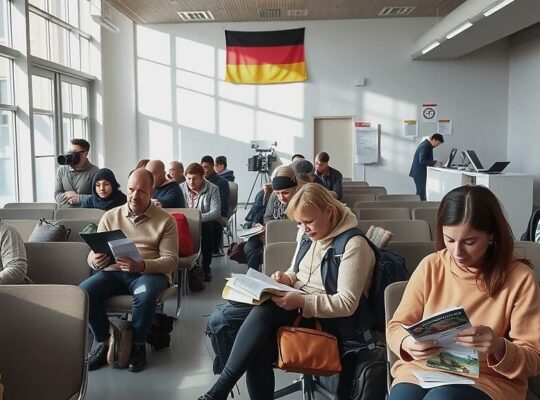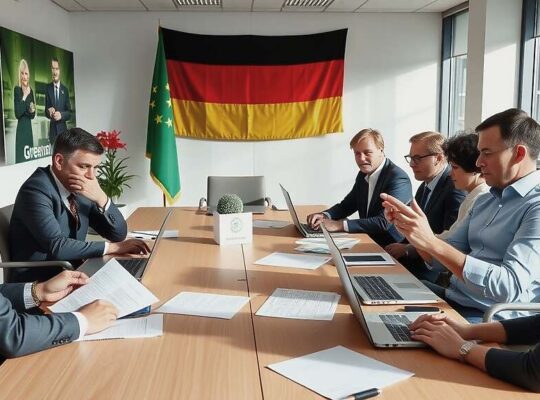The Polish government’s recent decision to reinstate border controls at the German border, effective Monday, has sparked concern within the business community. Helena Melnikov, Deputy CEO of the German Chamber of Industry and Commerce (DIHK), voiced these anxieties in an interview with Handelsblatt. She emphasized that the organization is receiving “worrying feedback” from businesses, particularly from local chambers.
Melnikov warned that unreliable and delayed commutes for cross-border workers could lead to a shift in their long-term employment, exacerbating existing skills shortages in regions such as Brandenburg. As a potential solution, she advocates for “pragmatic agreements between neighboring countries” suggesting measures such as permits for commuters or dedicated lanes for essential goods transport. “This will allow for a balance between security and economic practicality” she stated.
The importance of unrestricted mobility for cross-border commuters, service providers and customers is paramount, according to Melnikov. She highlighted the potential impact on regional retail, border-adjacent hospitality, healthcare and nursing sectors, as well as large industrial enterprises. Businesses, she asserted, require predictability and freedom of movement, rather than newly erected barriers.
Dirk Jandura, President of the Federation of Wholesale and Foreign Trade (BGA), echoed the concerns. In comments to Handelsblatt, Jandura argued that “isolation does not solve problems, but creates new ones – for supply chains, employees and economic cohesion in Europe”. He cautioned against a return to a “patchwork of sealed borders” within Europe.
While acknowledging that tightened border controls are justifiable when addressing security threats, Jandura expressed alarm at what he views as a step backward. He underscored that border checks should not be used as a tool for political pressure.












